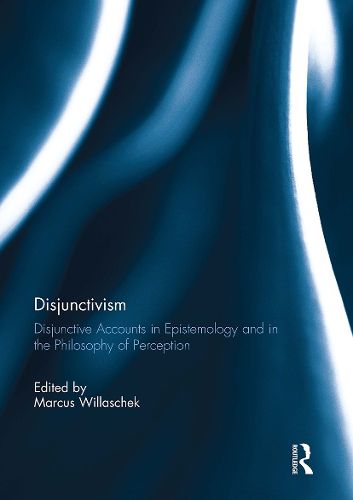Readings Newsletter
Become a Readings Member to make your shopping experience even easier.
Sign in or sign up for free!
You’re not far away from qualifying for FREE standard shipping within Australia
You’ve qualified for FREE standard shipping within Australia
The cart is loading…






Does perception provide us with direct and unmediated access to the world around us? The so-called 'argument from illusion ' has traditionally been supposed to show otherwise: from the subject's point of view, perceptual illusions are often indistinguishable from veridical perceptions; hence, perceptual experience, as such, cannot provide us with knowledge of the world, but only with knowledge of how things appear to us. Disjunctive accounts of perceptual experience, first proposed by John McDowell and Paul Snowdon in the early 1980s and at the centre of current debates in the philosophy of perception, have been proposed to block this argument. According to the traditional view, a case of perception and a subjectively indistinguishable illusion or hallucination can exemplify what is fundamentally the same kind of mental state even though they differ in how they relate to the non-mental environment. In contrast, according to the disjunctive account, the concept of perceptual experience should be seen as essentially disjunctive, encompassing (at least) two distinct kinds of mental states, namely genuinely world-involving perceptions and mere appearances.
This book presents seven recent essays on disjunctivism first published in two special issues of Philosophical Explorations: An International Journal for the Philosophy of Mind and Action.
$9.00 standard shipping within Australia
FREE standard shipping within Australia for orders over $100.00
Express & International shipping calculated at checkout
Does perception provide us with direct and unmediated access to the world around us? The so-called 'argument from illusion ' has traditionally been supposed to show otherwise: from the subject's point of view, perceptual illusions are often indistinguishable from veridical perceptions; hence, perceptual experience, as such, cannot provide us with knowledge of the world, but only with knowledge of how things appear to us. Disjunctive accounts of perceptual experience, first proposed by John McDowell and Paul Snowdon in the early 1980s and at the centre of current debates in the philosophy of perception, have been proposed to block this argument. According to the traditional view, a case of perception and a subjectively indistinguishable illusion or hallucination can exemplify what is fundamentally the same kind of mental state even though they differ in how they relate to the non-mental environment. In contrast, according to the disjunctive account, the concept of perceptual experience should be seen as essentially disjunctive, encompassing (at least) two distinct kinds of mental states, namely genuinely world-involving perceptions and mere appearances.
This book presents seven recent essays on disjunctivism first published in two special issues of Philosophical Explorations: An International Journal for the Philosophy of Mind and Action.